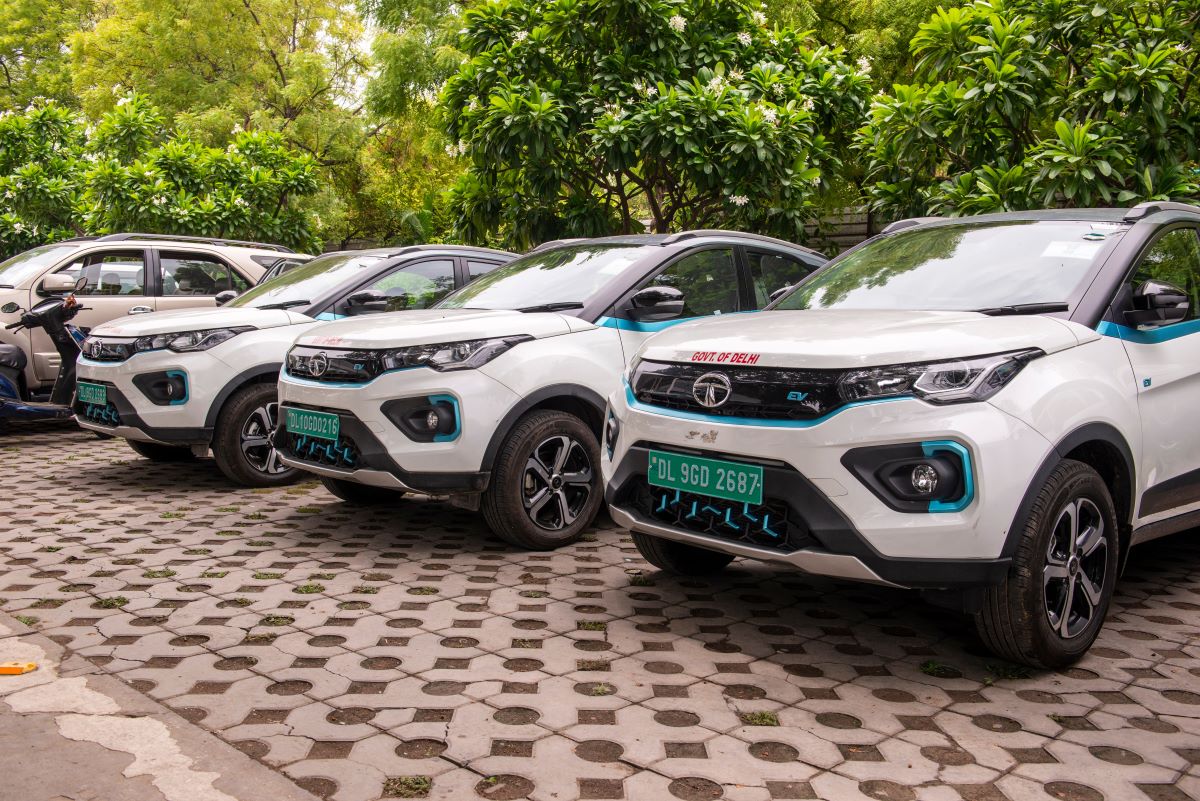India is the world’s second most populous country in the world, and while this is not a parameter for the rising consumption in the country, it does provide a brief picture of the potential for marketers. India’s EV market is one such dark horse which has grown over 200% in 2022 alone, and the country surpassed Japan to become the third-largest automotive market in the world behind China and the US.
As the world moves towards electric vehicles, it is essential to see how the top markets are doing when it comes to the adoption of these cleaner vehicles. Although India has managed to become one of the top markets for automotive, the total number of EVs sold in the country among all new vehicles is still low compared to the majority of European countries.
The scope of India EV market
A recent report by market analysis firm Canalys found that India added around 48,000 EVs in 2022, a 223% jump over the previous year, thanks to the pent-up demand and rising buying power of the consumer.
As per the most recent data, new vehicle sales in India topped approximately 4.25 million units in 2022, and the volume is expected to rise further. However, the majority of these new auto sales were for vehicles powered by an internal combustion engine. A report by British research firm Euromonitor said that as of 2021 only 8.5% of Indian households owned a passenger vehicle, indicating the large room for growth in the automotive sector.
India has an ambitious target for EVs, and it expects that by 2030, 70% of all commercial cars, 30% of all private cars, 40% of all buses, and 80% of two-wheeler and three-wheeler sales will be for electric vehicles. This amounts to about 102 million in sales for EVs.
A report by the think tank CEEW Centre for Energy Finance (CEEW-CEF) found that India’s EV market will be a $206 bn opportunity by 2030 if the country heads towards achieving its targets. However, this would require a total investment of over $180 bn in manufacturing and charging infrastructure.
Meanwhile, a separate report by the India Energy Storage Alliance (IESA) sees India EV market growing at a CAGR of 49% between 2022-2030, whereas the EV battery market will see a CAGR of 30% until 2026.
But how is the country making strides towards achieving these goals? India’s EV sector is still in a nascent stage and the electric models are also selling for a premium over models with internal combustion engines, a pain point for the budget-conscious consumer of the country. Additionally, charging infrastructure is still under development and is not available beyond major cities.
The government has launched phase two of the Faster Adoption and Manufacturing of Hybrid and Electric Vehicles in India (FAME), under which it is giving incentives to manufacturers as well as buyers. Separately, India’s production-linked incentives scheme has also helped develop the EV supply chain in the country.
On a more micro level, states in India such as Andhra Pradesh, Uttar Pradesh, Bihar and Telangana have taken the lead in investor-friendly policies and are pushing for charging infrastructure so that adoption increases in the country. The state of Karnataka was the first to come up with a well-rounded EV policy and is a hotspot for EV businesses.
“The EV industry’s importance and impending growth are already attracting investments in the sector. In 2021, it had around $6 bn investments, which is expected to increase to $20 bn by 2030,” as per Invest India, the government’s investment promotion agency.
Who is leading the charge?
There are only a handful of companies in India’s EV market, with the most successful being Tata Motors which has an 86% share with just two models. Some other brands which have released EVs in the country include Morris Garages, Hyundai, Audi, BMW and Mercedes-Benz, among others.
India’s top automaker Maruti Suzuki does not have a single electric vehicle in the market and is instead focusing on hybrid vehicles and alternative fuels cars. However, the company is scheduled to launch an all-electric SUV later in 2025.
Among battery markers, listed firms Amara Raja Batteries and Exide are focusing on producing lithium-ion batteries. However, the most popular electric vehicles in the country are two-wheeler startups, such as the recent release of an e-scooter by Ola Electric Mobility, a unit of unicorn cab aggregator Ola. Some other popular names include Aether Energy, Mahindra Electric, and Tork Motors.
“EV growth will create material new revenue and profit pools, generating $76 bn to $100 bn of cumulative revenue opportunity and $8 bn to $11 bn of profit across the EV value chain,” Bain & Co said in a report published late last year.
Meanwhile, the case for two- and three-wheeler EV sales is stronger when in comes to India. “Sales of new E2Ws and E3Ws could grow to 50% and 70%, respectively, by 2030,” expects McKinsey & Co, adding that, “Electric PVs and HCVs are expected to account for 10% to 15% and 5% to 10% of new vehicle sales, respectively, by 2030.”
However, there is still a long way to go for India’s EV sector as vehicles with internal combustion engines will still be big sellers in the country.










 Australia
Australia China
China India
India Indonesia
Indonesia Japan
Japan Malaysia
Malaysia Philippines
Philippines Singapore
Singapore South Korea
South Korea Taiwan
Taiwan Thailand
Thailand Vietnam
Vietnam
 Germany
Germany USA
USA Switzerland
Switzerland Singapore
Singapore
 United Kingdom
United Kingdom








